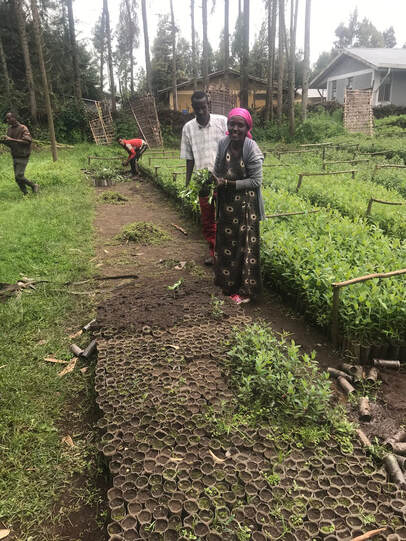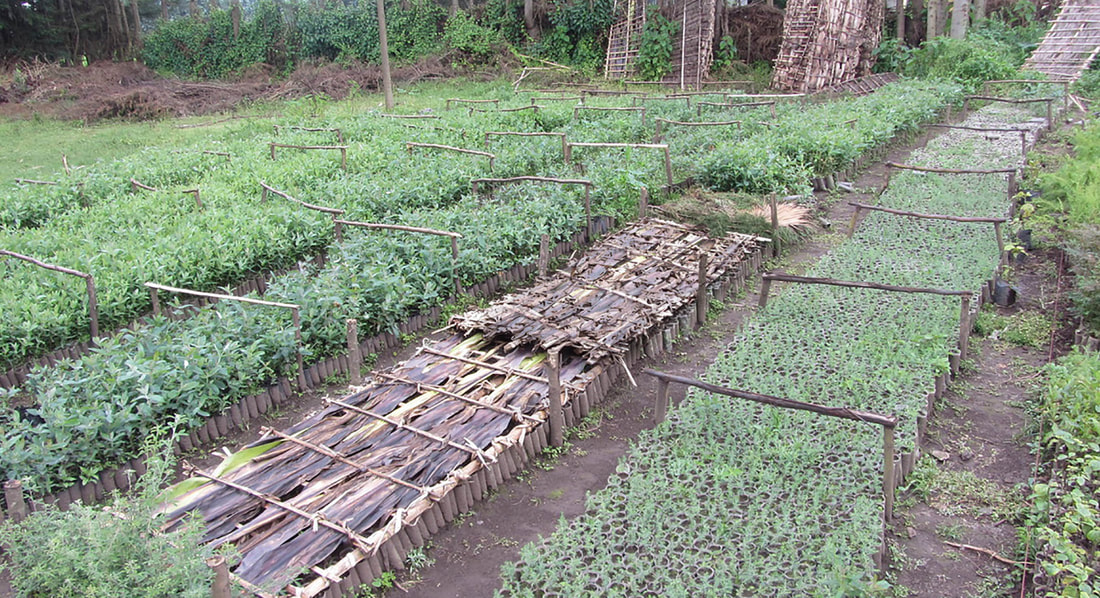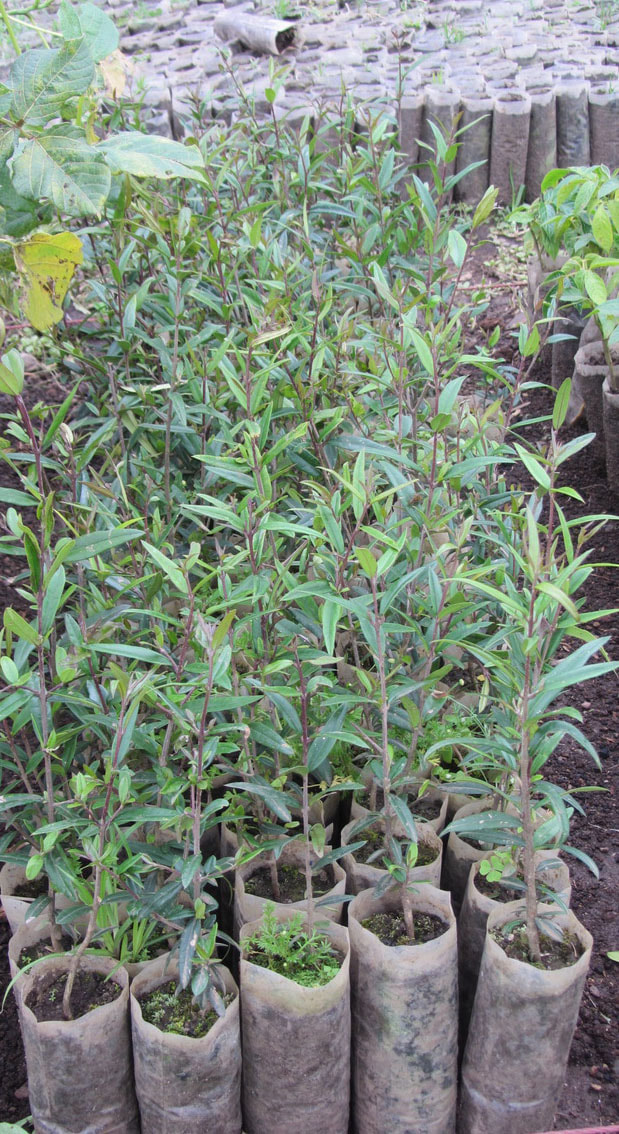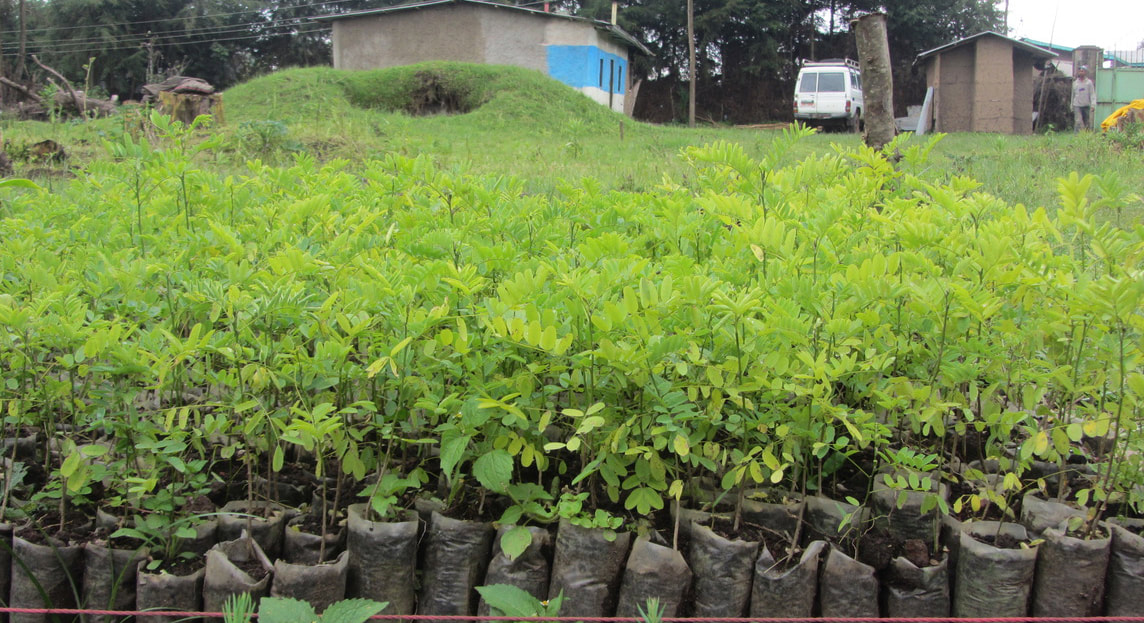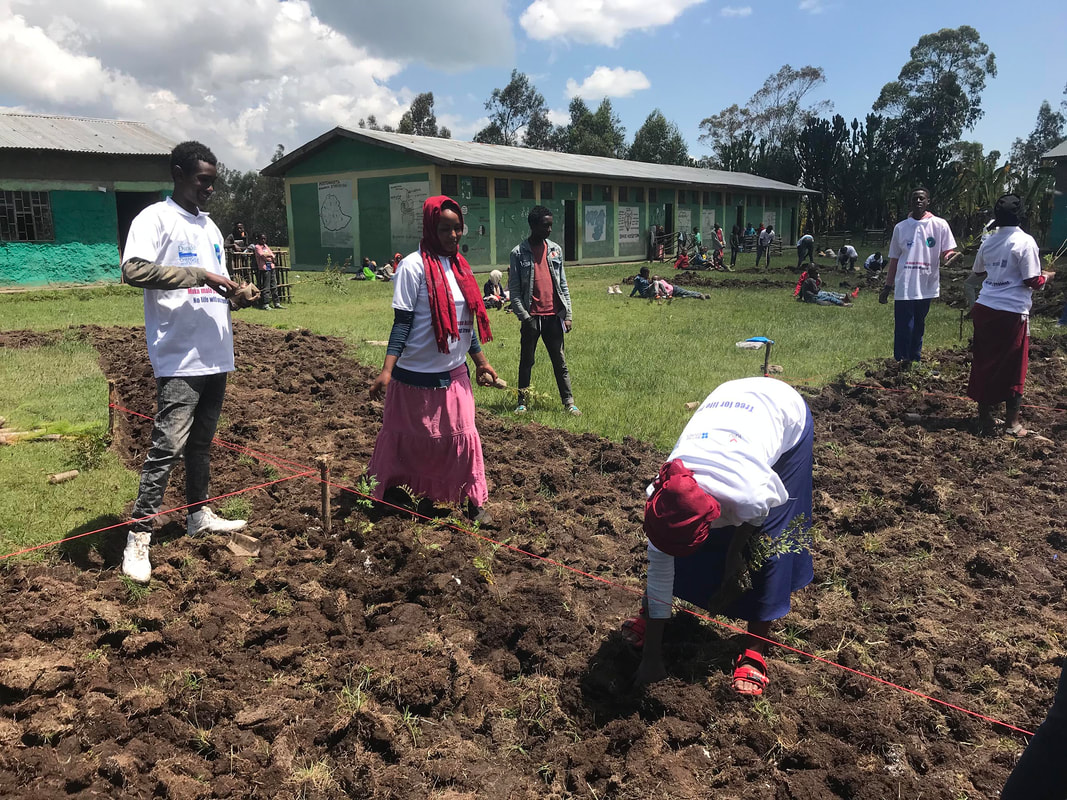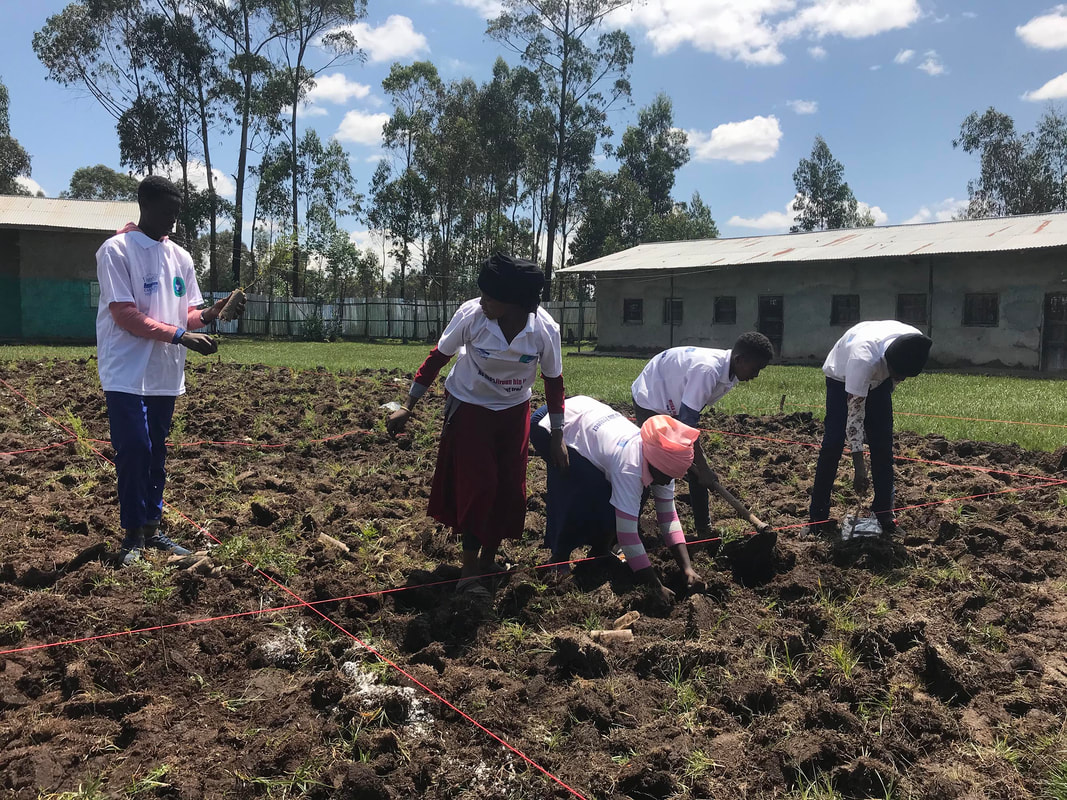|
What's next
SCALING TREES FOR LIFE into the future Rural Association for Betterment of Agro-Pastoralists (ROBA) is fundraising to scale the operation of the current tree nursery to involve more youth and women participants in silviculture training, plus expand the nursery operation to five other locations. There has been demand by communities and towns in the Oromia region to emulate the successes of this first developments of ‘Trees for Life’ in Kofele, Ethiopia. |
By establishing other training sites, ROBA can assist vulnerable Oromo agro-pastoralist communities to better manage their own climate risks by enhancing local-level adaptation planning through tree nurseries, tree planting, training and wider education. These are so critically key to increasing environmental and economic resilience vis-a-vis livelihood diversification.
ROBA’s proposed an expanded network of Oromia tree nurseries will include a specific mandate for the training of rural women to operate these nurseries.
ROBA’s proposed an expanded network of Oromia tree nurseries will include a specific mandate for the training of rural women to operate these nurseries.
Immediate Community Benefit of ROBA's tree nursery to Agro-Pastoralists
Agropastoralist, Tiyu Guru, describes in his native language, Afaan Oromo, the benefits of having access to a local tree nursery established by ROBA in order rehabilitate the land. In particular in Ethiopia transportation costs can be prohibitive and by having a tree nursery in the local area many agropastoralists can gain access to a variety of tree seedlings without being overwhelmed by fuel and delivery charges. By planting trees, locals have gained the benefit of further food security, diversification of crops and an ability to increase and support natural assets. Tree growing has also aided locals now benefiting by having access to timber resources to assist in the development of their own housing. The production of local regenerative timber plants is of great assistance since it removes the burden and stresses of farmers from taking on additional debt and/or loans to pay for the transport and costs of construction materials brought into the local area.
English language summaries of Tiyu Guru's Afaan Oromo language interview can be found at these intervals in the video at 50s, 2min and at 3min10s Video produced by Geleta Aman, 2022
Agropastoralist, Tiyu Guru, describes in his native language, Afaan Oromo, the benefits of having access to a local tree nursery established by ROBA in order rehabilitate the land. In particular in Ethiopia transportation costs can be prohibitive and by having a tree nursery in the local area many agropastoralists can gain access to a variety of tree seedlings without being overwhelmed by fuel and delivery charges. By planting trees, locals have gained the benefit of further food security, diversification of crops and an ability to increase and support natural assets. Tree growing has also aided locals now benefiting by having access to timber resources to assist in the development of their own housing. The production of local regenerative timber plants is of great assistance since it removes the burden and stresses of farmers from taking on additional debt and/or loans to pay for the transport and costs of construction materials brought into the local area.
English language summaries of Tiyu Guru's Afaan Oromo language interview can be found at these intervals in the video at 50s, 2min and at 3min10s Video produced by Geleta Aman, 2022
Digital Skills and Community Learning
ROBA intends that every community and new tree nursery site will include a digital learning and research study ecology centre.
Participants will be introduced to multimedia mobile phone authoring, the use of the PlantVillage satellite app for satellite data and other e-tools for crop info. By facilitating and the capturing the stories of agropastorialist elders their ecological wisdom can help info nursery trainees from women to youth. Digital storytelling records will also encourage children to learn and to reinterpret these in the creation of their own stories about ecological resilience and adaptation.
ROBA is anticipating that with funding for 5 tree nursery sites it can reach an expanded networkof 250 women, 300 youth, 150 elders, and 250 school children for ecological and digital authoring skills training. The impact of these networks running annually will be significant in increasing income diversification and in creating more environmentally resilient as well as healthy communities
Digital Narratives
Student, Dire Mohamed Shemsi, is undertaking field work and learning how to narrate to an audience about how some of the native flora in West Arsi District, Oromia, Ethiopia provides both cultural and economic purposes for her Oromo community. The tree she is describing is sometimes referred to as the Forest Primrose or Curry Bush, because of the curry-like odour given off by the leaves, particularly when crushed. This evergreen is considered a pioneer plant and grows in thickets on forest margins where it is said to create a firebreak. It does not burn well and protects the forest from the spread of forest fires.
Research and script: Dire Mohamed Shemsi | Video production by Rameto Dhekbi under the tutelage of Geleta Aman at ROBA
ROBA intends that every community and new tree nursery site will include a digital learning and research study ecology centre.
Participants will be introduced to multimedia mobile phone authoring, the use of the PlantVillage satellite app for satellite data and other e-tools for crop info. By facilitating and the capturing the stories of agropastorialist elders their ecological wisdom can help info nursery trainees from women to youth. Digital storytelling records will also encourage children to learn and to reinterpret these in the creation of their own stories about ecological resilience and adaptation.
ROBA is anticipating that with funding for 5 tree nursery sites it can reach an expanded networkof 250 women, 300 youth, 150 elders, and 250 school children for ecological and digital authoring skills training. The impact of these networks running annually will be significant in increasing income diversification and in creating more environmentally resilient as well as healthy communities
Digital Narratives
Student, Dire Mohamed Shemsi, is undertaking field work and learning how to narrate to an audience about how some of the native flora in West Arsi District, Oromia, Ethiopia provides both cultural and economic purposes for her Oromo community. The tree she is describing is sometimes referred to as the Forest Primrose or Curry Bush, because of the curry-like odour given off by the leaves, particularly when crushed. This evergreen is considered a pioneer plant and grows in thickets on forest margins where it is said to create a firebreak. It does not burn well and protects the forest from the spread of forest fires.
Research and script: Dire Mohamed Shemsi | Video production by Rameto Dhekbi under the tutelage of Geleta Aman at ROBA
Learning legacy
With the near conclusion of the delivery of the ‘Trees for Life’ as a Creative Climate commission in the Oromia region of Ethiopia, ROBA now firmly believes in an interdisciplinary, and creative based learning approach be adopted in all its future silviprojects - so that no one aspect of tree-rearing is learned in isolation but rather it is part of wider conversations and actions translating into community knowledge and benefits.
This remains one of the key legacies of ‘Trees for Life’ is that it has emerged into a successful learning climate and community model that can scale, add creative knowledge, and use the visual arts to collectively problem-solve -- transforming communities into beacons and residents to become ambassadors and champions of climate hope during such challenging times.
With the near conclusion of the delivery of the ‘Trees for Life’ as a Creative Climate commission in the Oromia region of Ethiopia, ROBA now firmly believes in an interdisciplinary, and creative based learning approach be adopted in all its future silviprojects - so that no one aspect of tree-rearing is learned in isolation but rather it is part of wider conversations and actions translating into community knowledge and benefits.
This remains one of the key legacies of ‘Trees for Life’ is that it has emerged into a successful learning climate and community model that can scale, add creative knowledge, and use the visual arts to collectively problem-solve -- transforming communities into beacons and residents to become ambassadors and champions of climate hope during such challenging times.
